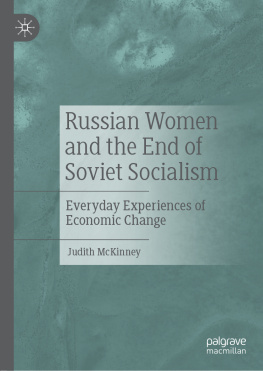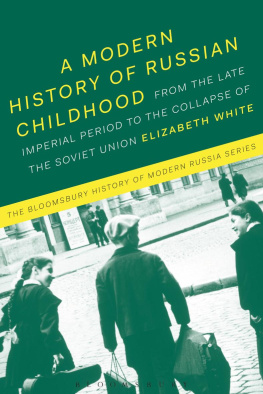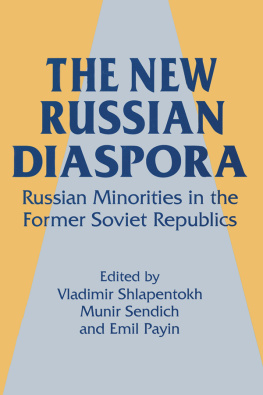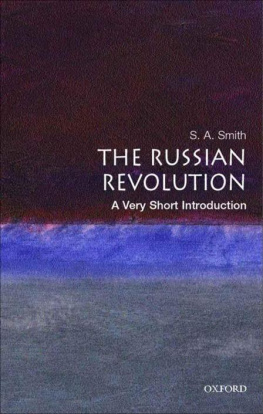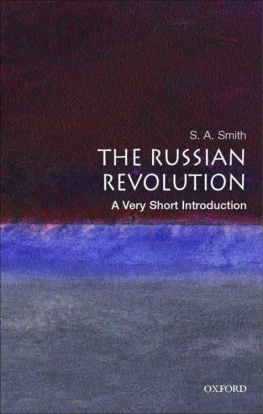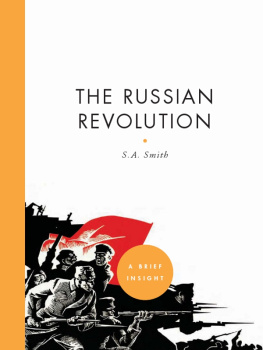Judith McKinney
Hobart and William Smith Colleges, Geneva, NY, USA
ISBN 978-3-030-16225-2 e-ISBN 978-3-030-16226-9
https://doi.org/10.1007/978-3-030-16226-9
The Editor(s) (if applicable) and The Author(s), under exclusive license to Springer Nature Switzerland AG 2020
This work is subject to copyright. All rights are solely and exclusively licensed by the Publisher, whether the whole or part of the material is concerned, specifically the rights of translation, reprinting, reuse of illustrations, recitation, broadcasting, reproduction on microfilms or in any other physical way, and transmission or information storage and retrieval, electronic adaptation, computer software, or by similar or dissimilar methodology now known or hereafter developed.
The use of general descriptive names, registered names, trademarks, service marks, etc. in this publication does not imply, even in the absence of a specific statement, that such names are exempt from the relevant protective laws and regulations and therefore free for general use.
The publisher, the authors and the editors are safe to assume that the advice and information in this book are believed to be true and accurate at the date of publication. Neither the publisher nor the authors or the editors give a warranty, expressed or implied, with respect to the material contained herein or for any errors or omissions that may have been made. The publisher remains neutral with regard to jurisdictional claims in published maps and institutional affiliations.
This Palgrave Macmillan imprint is published by the registered company Springer Nature Switzerland AG
The registered company address is: Gewerbestrasse 11, 6330 Cham, Switzerland
Preface
It has been over twenty-five years since Mikhail Gorbachev presided over the dissolution of the Soviet Union, and over thirty since his accession to the position of General Secretary of the Communist Party. Gorbachevs rule marked the beginning of the countrys transition from central planning of economic activity and state ownership of the means of production to an economy where markets and private ownership play important roles. Those who expected the smooth and rapid emergence of a textbook version of a private-enterprise, free-market economy functioning in an American-style democracy have been proved wrong; those who look at political and economic life in Russia after Vladimir Putins return to the presidency in 2012 as proof that nothing in Russia ever really changes are also mistaken. While there is no doubt that Putin has reintroduced central control over much of the political sphere and key elements of the economy, the everyday lives of ordinary Russian citizens are dramatically different from what they were in the late 1980s, in ways both great and small, and for reasons having as much to do with systemic changes and policy shifts as with technological advances.
I made my first trip to Russia in the summer of 1968, just before the Soviet invasion of Czechoslovakia, and spent a semester at Leningrad State University in spring of 1971 with one of the first groups of American undergraduates to have this opportunity. Over the course of that semester we witnessedand sometimes personally experiencedmany of the consequences of the Soviet system. Letters from home were occasionally opened before we received them. Russian friends requested that we not acknowledge them when we were on buses or subway cars together or when we encountered them on the street unless theyand wewere alone. And late one night, as I took a walk to get some fresh air after a long bus ride, I realized that I was keeping some poor KGB informant out in the cold and snow as he watched to make sure I wasnt meeting someone the authorities would want to know about. There were few cars on the streets in that era and little variety in the shops. Buying anything was a long and complicated process, and could be impossible if the clerk took a dislike to you. While tickets for concerts and the ballet were astonishingly inexpensive, oranges were so rare that if one of us managed to find any we would hold a party to celebrate. Twice a week we joined the lines of students in our dorm waiting for the showers, hoping to reach one of the stalls before the hot water was cut off.
Twenty-four years laterin December of 1995I returned to the city, now rechristened St. Petersburg, and was greeted by Russian friends waiting openly for me in the lobby of a hotel. They joined excursions with the small group of Americans I was escorting and invited me to one of their apartments for dinner and wide-ranging conversation. They talked openly with me about the sharp increase in economic inequality and the new prevalence of crime and antisocial behavior, as well as about the toll that our friendship had taken on their early career opportunities. Litter, which simply had not existed during my earlier visit, was now conspicuous and, when I bent to pick up a piece of paper I had inadvertently dropped, a friend told me not to bother since everyone now tossed everything everywhere. The babushki literally, grandmothers, but routinely used to refer to any older womenwho had earlier considered it their duty to scold anyone guilty of misbehaving (by littering, by not having a loop with which to hang ones coat over a hook, by wearing slacks while female, or by breaking any one of hundreds of other implicit rules of appropriate behavior)were now too busy trying to sell items at sidewalk kiosks or in the subways to worry about such violations of the social norm. At the same time, the stores were full (of both products and shoppers) and during this ten-day visit I had more opportunity to eat apples, oranges and tomatoes than I had during the entire four months I spent in the country in 1971. Ads were often in English, a McDonalds had opened in Moscow, and the dollar was accepted for payment in most situations.
Despite having studiedand indeed taughtabout the changes taking place under Gorbachev and Boris Yeltsin, I spent that short visit in 1995 in a state of culture shock, stunned not by the differences between life in the United States and life in Russia, but by the differences between the Soviet Union I remembered and this new unfamiliar Russia. Subsequent visitsfour since 2005have deepened my awe at the adjustments, both psychological and practical, that were required by those who lived there. These visits have also provided me with a richer understanding of how the government policies of liberalization, privatization and stabilizationthe cornerstones of the neoliberal prescription for the economic transitionwere experienced on the ground and how the policies introduced by Putin in the 2000s have further reshaped life in Russia.
This book, based on interviews I conducted in the city of Yaroslavl as a Fulbright Scholar in the fall of 2012, offers a look at the adjustments and experiences of a particular subset of Russian citizensfemale, mostly middle-aged, middle-class professionalsduring the economic, political and social transformations of the post-Soviet period. These conversations provided examples of how everyday life changed for the women and suggested how these changes challenged their views of the government and of the appropriate relationship between the government and the population. How the women shaped their narratives also offers insight into what they thought their responses to the changes revealed about themselves. Some of the challenges and hardships they faced were openly acknowledged and blamed squarely on government policy; other situations were sanitized, as if acknowledging the difficulties would have reflected badly on their own capabilities.

